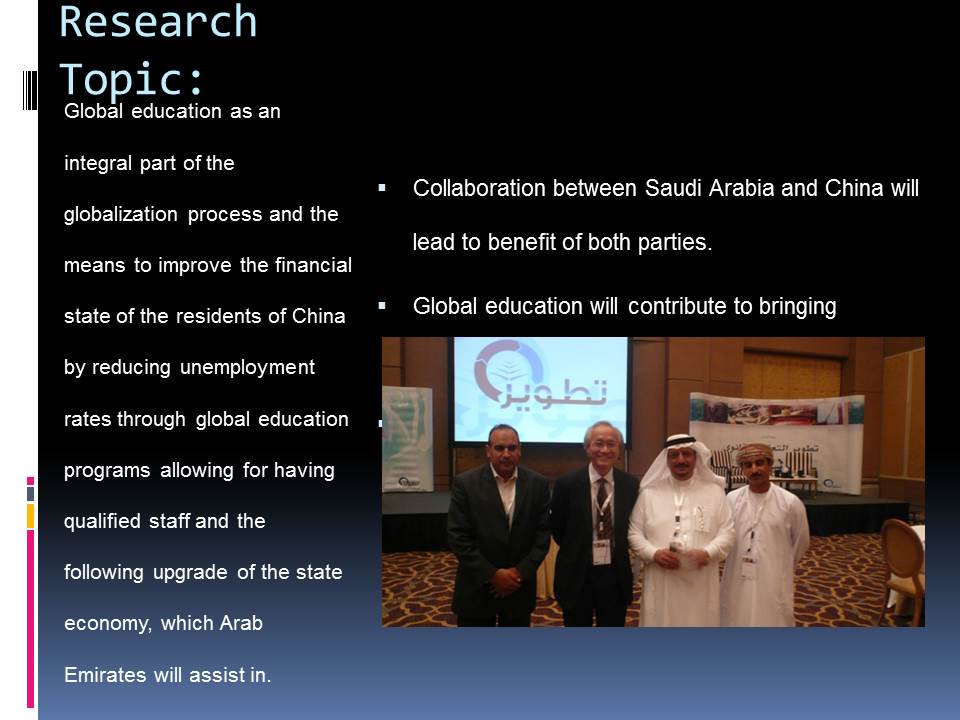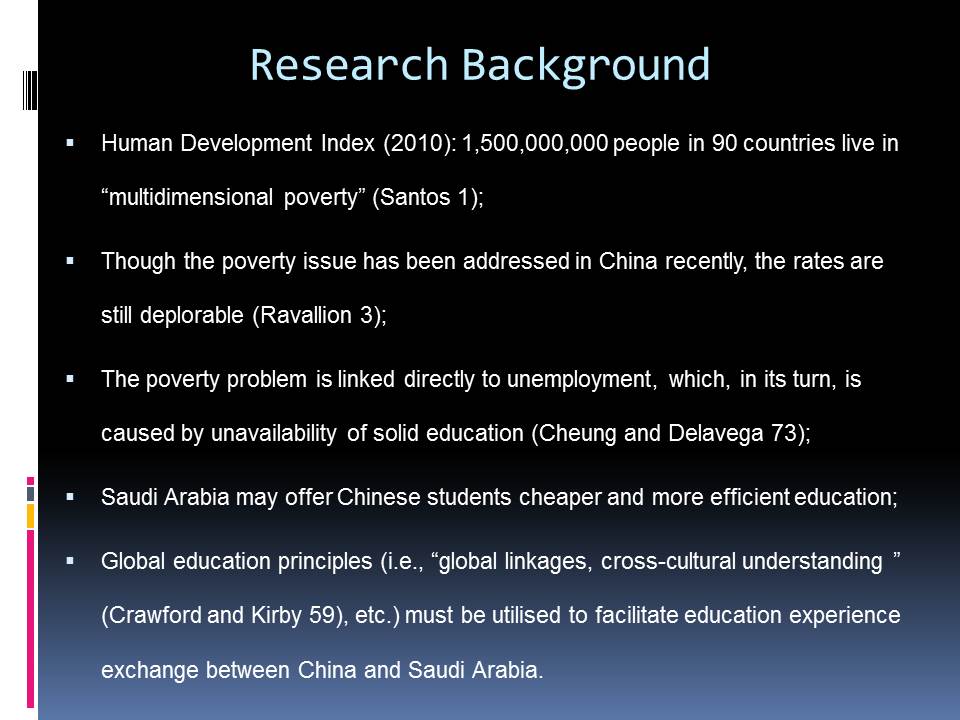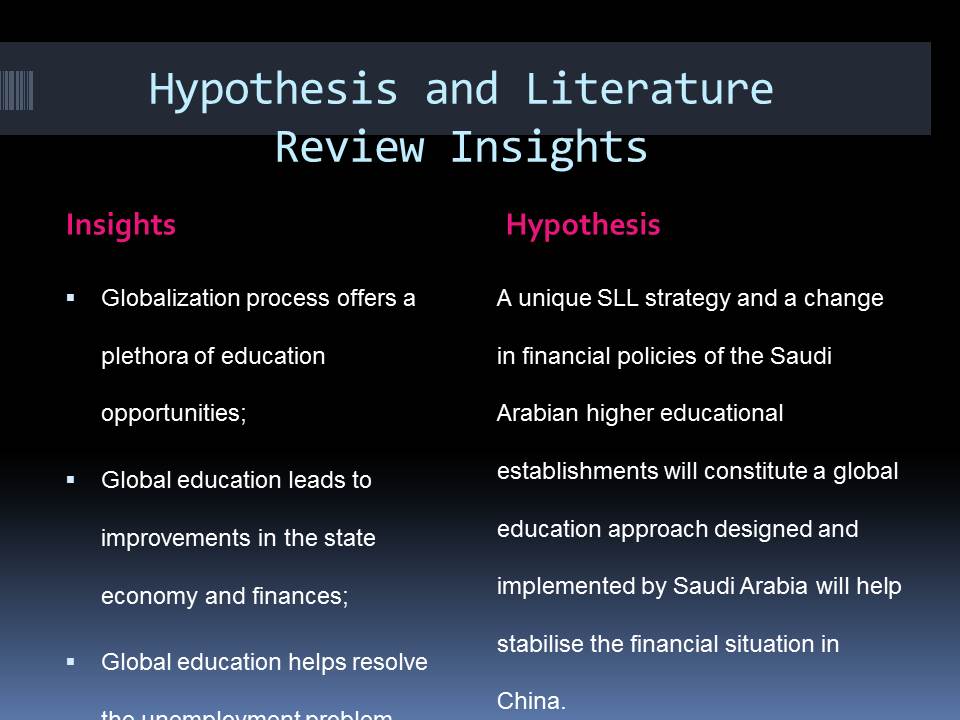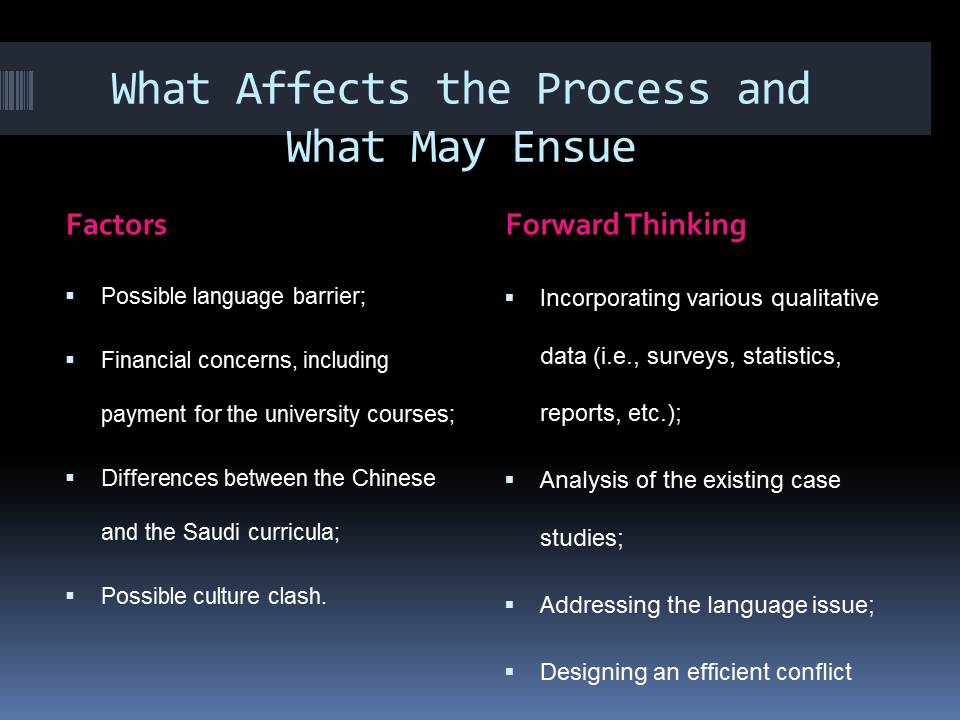Research Topic
- Collaboration between Saudi Arabia and China will lead to benefit of both parties.
- Global education will contribute to bringing unemployment rates in China down.
Research type: phenomenology (qualitative).
Global education as an integral part of the globalization process and the means to improve the financial state of the residents of China by reducing unemployment rates through global education programs allowing for having qualified staff and the following upgrade of the state economy, which Arab Emirates will assist in.

Research Background
- Human Development Index (2010): 1,500,000,000 people in 90 countries live in “multidimensional poverty” (Santos 1);
- Though the poverty issue has been addressed in China recently, the rates are still deplorable (Ravallion 3);
- The poverty problem is linked directly to unemployment, which, in its turn, is caused by unavailability of solid education (Cheung and Delavega 73);
- Saudi Arabia may offer Chinese students cheaper and more efficient education;
- Global education principles (i.e., “global linkages, cross-cultural understanding ” (Crawford and Kirby 59), etc.) must be utilised to facilitate education experience exchange between China and Saudi Arabia.

Hypothesis and Literature Review Insights
Insights
- Globalization process offers a plethora of education opportunities;
- Global education leads to improvements in the state economy and finances;
- Global education helps resolve the unemployment problem.
Hypothesis
A unique SLL strategy and a change in financial policies of the Saudi Arabian higher educational establishments will constitute a global education approach designed and implemented by Saudi Arabia will help stabilise the financial situation in China.

What Affects the Process and What May Ensue
Factors
- Possible language barrier;
- Financial concerns, including payment for the university courses;
- Differences between the Chinese and the Saudi curricula;
- Possible culture clash.
Forward Thinking
- Incorporating various qualitative data (i.e., surveys, statistics, reports, etc.);
- Analysis of the existing case studies;
- Addressing the language issue;
- Designing an efficient conflict management strategy.

Reference List
Cheung, Monit and Elena Delavega. “Child Savings Accounts: Learning from Poverty Reduction Policies in the World.” International Social Work 55.1 (2012), 71-94.
Crawford, Elizabeth O. and Misty M. Kirby. “Fostering Students’ Global Awareness: Technology Applications in Social Studies Teaching and Learning.” Journal of Curriculum and Instruction 2.1 (2008), 56–73. Print.